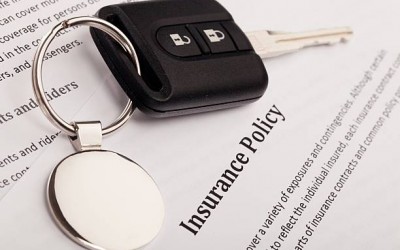Common Pitfalls in a Personal Injury Claim – And How to Avoid Them

Being involved in a car accident, slip and fall, or any other type of incident where you sustain injuries can be very scary and confusing. You will likely be left with many questions you’ve never had to deal with before. Who should and shouldn’t you be talking to and what you should be disclosing about your accident? Where do you go for medical treatment and how do you pay for it? If your injuries stop you from being able to work, how are you going to cover your expenses? What kind of recourse do you have?
These are some of the most common questions we are asked by injured people after an accident. Having these answers as soon as possible following an accident is very important in making sure you’re on the right track to your best possible recovery, both in terms of your health and being fairly compensated if you have suffered losses.
Injury claims can take a long time to settle. There are many different stages of an injury claim and there are several obligations on the injured claimant throughout this process. Not knowing your rights, options, and best courses of action after an accident can have many negative implications on an injury claim.
The party responsible for your injuries, or their insurance company, will always use their best efforts to try to show you failed to do something or did something wrong in your injury claim to try to limit your fair compensation. Your best option is to contact an experienced injury lawyer directly after an accident, but knowing some quick tips can help in making sure your injury claim goes as smoothly as possible.
Be Aware of your “Limitation Period”
For personal injury claims, under Nova Scotia law, people generally have two years from the date of the accident to file a claim (lawsuit) with the court. The limitation period can sometimes be less than two years and there are various exceptions to this rule, so it is very important to discuss this issue with an injury lawyer as soon as possible after an accident.
Be Cautious About Who You Talk to About the Accident
The party responsible for your injuries or their insurer will likely try to contact you after an accident. Be very cautious of what you disclose to these people. You do not have to disclose anything to them and often what you disclose they will try to use against you.
If You Are Injured, Seek Treatment Immediately
Failure to do this will sometimes lead to the responsible party saying down the road that you failed to “mitigate your losses”. Injured people who bring a claim have a responsibility to put their best efforts forward to get better after an accident.
Do Not Stop Treatment Prematurely
Sometimes the demands of day to day life make it hard to go for all the treatment you may need. However, it is very important to make your treatment a priority and to do as much as possible to try to get yourself better in an injury claim.
Follow up Regularly with your Doctor(s) and Therapist(s)
It is important not to assume that you’re at maximum recovery and stop treatment. Even if you’re feeling better, accident related injuries can have unexpected “flare-ups”. Make sure you regularly ask your doctor and therapist for their opinion about how your injuries are likely to look in the future.
Be Cautious About Social Media
Insurance companies carefully monitor social media accounts to “keep tabs” on injured claimants. They will often try to use innocent photos or comments posted on social media against you. These posts can have a negative impact on your claim. Make sure your privacy settings are at a level you’re comfortable with.
These are only a few examples of caution that should be exercised throughout an injury claim. The best course of action is to seek a consultation from an experienced injury lawyer as soon as possible after an accident to make sure things are on the right track from the beginning of a claim to the end.






















